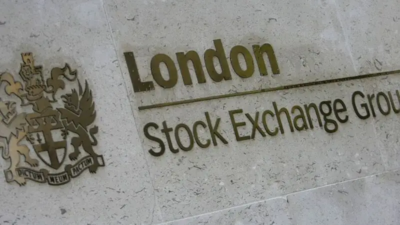Joe Biden’s top economic adviser isn’t worried about the latest inflation data
A version of this story first appeared in CNN Business’ Before the Bell newsletter. Not a subscriber? You can sign up right here. You can listen to an audio version of the newsletter by clicking the same link.
US markets broke a five-week winning streak last Friday after disappointing inflation data reignited economic and interest rate-related fears on Wall Street.
Worries about high prices and elevated interest rates had receded over the past few months as strong economic reports and Federal Reserve forecasts led traders to believe that a soft landing, where the economy remains strong and inflation eases, was increasingly possible.
Then last week, two key inflation indicators for January — the Consumer Price Index and Producer Price Index — rose above Wall Street expectations.
Fed talk also stoked market fears. Richmond Fed President Thomas Barkin said the new data showed that the Fed needs more confidence before cutting rates. The Fed’s Raphael Bostic also said he isn’t fully confident inflation is moving lower.
Now Wall Street’s worries appear to be back.
Before the Bell spoke with Jared Bernstein, the chair of the White House Council of Economic Advisers and a top adviser to President Joe Biden, about whether Wall Street is right to be worried.
This interview has been edited for length and clarity.
Before the Bell: Last week we saw two key inflation reports that were fairly disappointing. Does that worry you?
Jared Bernstein: I’m not worried about that. When it comes to inflation, the trend is our friend.
The trend is the underlying momentum of an economic indicator, and that trend has been quite supportive and consistent in terms of easing prices. We’ve been clear to say this isn’t a straight line, that one month or another can bounce one way or the other, and that’s one of the reasons why we don’t overemphasize any particular month, whichever way it goes.
So yes, the trend is your friend and sometimes your friend can annoy you, but they’re still your friend.
It’s a simple message, but markets don’t seem to be listening. Why is there such a disconnect?
First of all, let me just clarify something about the data this month. One of the data surprises this month went the other way, right? That’s retail sales. So some things have come in hotter than expected. Some things have come in cooler than expected. When you put it all together, the underlying dynamics still look solid to us. It’s important not to lose the hole, as they say in golf. There’s this idea that you’re focusing so carefully on the bumps in the green that you forget about the hole.
The point is this, what is it that got this disinflation moving in the right direction so quickly, and particularly without giving up much at all on the demand side of the economy? The answer is supply chain improvement, supply side normalization and the repairing of some of the very forces that led to the inflation in the first place, and those chains remain intact. Global flows look healthy. And in fact, if you look at goods inflation, including the CPI, it’s been flat or negative. Of course services are an important part of the puzzle too. But the basic story of what got us to where we are remains intact.
Every month is going to have some anomalous features. But there’s a very foundational reason why we don’t overtorque on one month’s data. It has nothing to do with talking points. It has everything to do with economic analysis. So that’s important.
Now in terms of the markets, remember, they say the stock market is not the economy, but it’s not not the economy (BTB: that’s a quote from Bloomberg’s Joe Weisenthal).
I think in this case, the market isn’t necessarily telling you much about the economy’s fundamentals, the market is telling you what other market participants think. When you’re making bets in the market you don’t necessarily bet on where you think things are going, you bet on where you think somebody else thinks things are going. I wouldn’t take a strong economic signal from that at all.
But is there still a large disconnect between Wall Street and main street economics? Or has the proliferation of the 401(k) democratized Wall Street a bit?
Look, as chair of the CEA, I have to focus on every important part of the economy, and that includes financial markets. I don’t think that everybody is deeply invested. It used to be that less than half of households held any stock, now it’s getting closer to 60%.
I would also suggest that some of the factors behind the broad market rally over the last year or so are far from disconnected from things that this president has achieved. The fact that the dominant forecast has moved from recession to recovery, that’s in the mix. The fact that the Investment agenda is particularly strong in areas of infrastructure, semiconductors and clean energy is in the mix. And look, the fact that the US economy is outperforming other advanced economies is also embedded in that rally somewhere. Capital is very footloose these days, it could go anywhere, and much of it is choosing to be here. And I think that those economic fundamentals get you to the part that says, you know, it’s not not the economy.
Are you worried about the rapid growth and size of some of these so-called Magnificent Seven companies — Apple, Meta, Google, Amazon, Nvidia, Microsoft and Tesla?
It’s definitely something we pay attention to. But whenever I look at the S&P 500, my next mouse click is to the equally weighted S&P. And the result isn’t that different. So especially over the past year, you can see positive movements there as well.
How are you monitoring household debt balances? Are they approaching any red flag levels?
This is another variable that we pay close attention to, especially given the importance of consumer spending in this expansion. And what we’re seeing, in many cases, is metrics that are climbing off the mat where they were during the pandemic and getting back to levels that look pretty close to pre-pandemic. In some cases, they’re a bit north of that. In some cases, they’re not back there yet. In fact, one case where we’re still below pre-pandemic levels is debt service as a share of income, which is sometimes left out of these discussions. It’s not enough to say the debt burden is ‘X,’ because people have to service that debt burden out of their income. One of the underappreciated trends in the current economy is the fairly brisk growth of inflation-adjusted personal income, which is really disposable personal income.
The increase in inflation-adjusted disposable income is important in this context because it’s out of that income flow that people service their debt. So when I look at the Fed’s measure of debt services, at least last time I looked, it was below its pre-pandemic level. So it’s definitely not flashing red, but we’re watching that trajectory.
Capital One is buying Discover in a $35.3 billion deal
Capital One announced it’s acquiring Discover Financial Services for $35.3 billion in an all-stock deal, giving the bank a leg up in the competitive credit card market, reports my colleague Elisabeth Buchwald.
Under the terms of the deal announced Monday evening, Discover (DFS) shareholders will receive a little over one share of Capital One (COF) for every Discover share they own. That represents an almost 27% premium from Discover’s closing share price of $110.49 on Friday.
If the deal is finalized, current Capital One shareholders will own a 60% stake in the combined company, while Discover shareholders will own the remaining 40%.
Capital One said it believes the deal will close in late 2024 or early 2025.
Israel’s economy slumps 19.4% in the fourth quarter as war takes a toll
Israel’s output contracted sharply in the final three months of 2023, falling for the first time in nearly two years, as the war with Hamas takes a heavy toll on the economy reports my colleague Hanna Ziady.
Gross domestic product (GDP) plunged 19.4% on an annualized basis compared with the July-to-September quarter, when it grew by a revised 1.8%, Israel’s Central Bureau of Statistics said Monday in its initial estimate.
The worse-than-expected decline was driven by a 26.9% drop in private consumption, as confidence plummeted following the October 7 attacks and households cut back on spending.
Fixed Investment by businesses tumbled 67.8%, “driven by a near-halt in residential building resulting from military call-ups and a reduction in Palestinian workers,” according to Liam Peach, senior emerging markets economist at Capital Economics. Exports declined 18.3.%.
“While a recovery looks set to take hold in (the first quarter), GDP growth over 2024 as a whole now looks likely to post one of its weakest rates on record,” Peach said in a note Monday.
Last year, Israel’s economy grew 2%, according to the statistics office.
Maybe You Like
London Stock Exchange urged to do more to hold onto retail traders
The UK stock market needs to improve investor communication and engagement in order to retain its individual traders, according to a report from online trade and investor provider CMC Markets. ADVERTISEMENTUK retail investors are increasingly...
Hargreaves Lansdown rejects private equity takeover bid
The UK investment platform says the offer from a group including the Abu Dhabi Investment Authority undervalues the firm. ADVERTISEMENTHargreaves Lansdown has rebuffed a takeover proposal worth £4.67 billion (€5.48 billion) made...
Ferrovial set to offload UK regional airports amid Heathrow deal uncertainty
Ferrovial is planning to sell its stake in three UK regional airports amid difficulties in finalising its £2.4bn sale of a 25% stake in Heathrow. ADVERTISEMENTSpanish infrastructure company Ferrovial is reportedly putting up for sale...



























